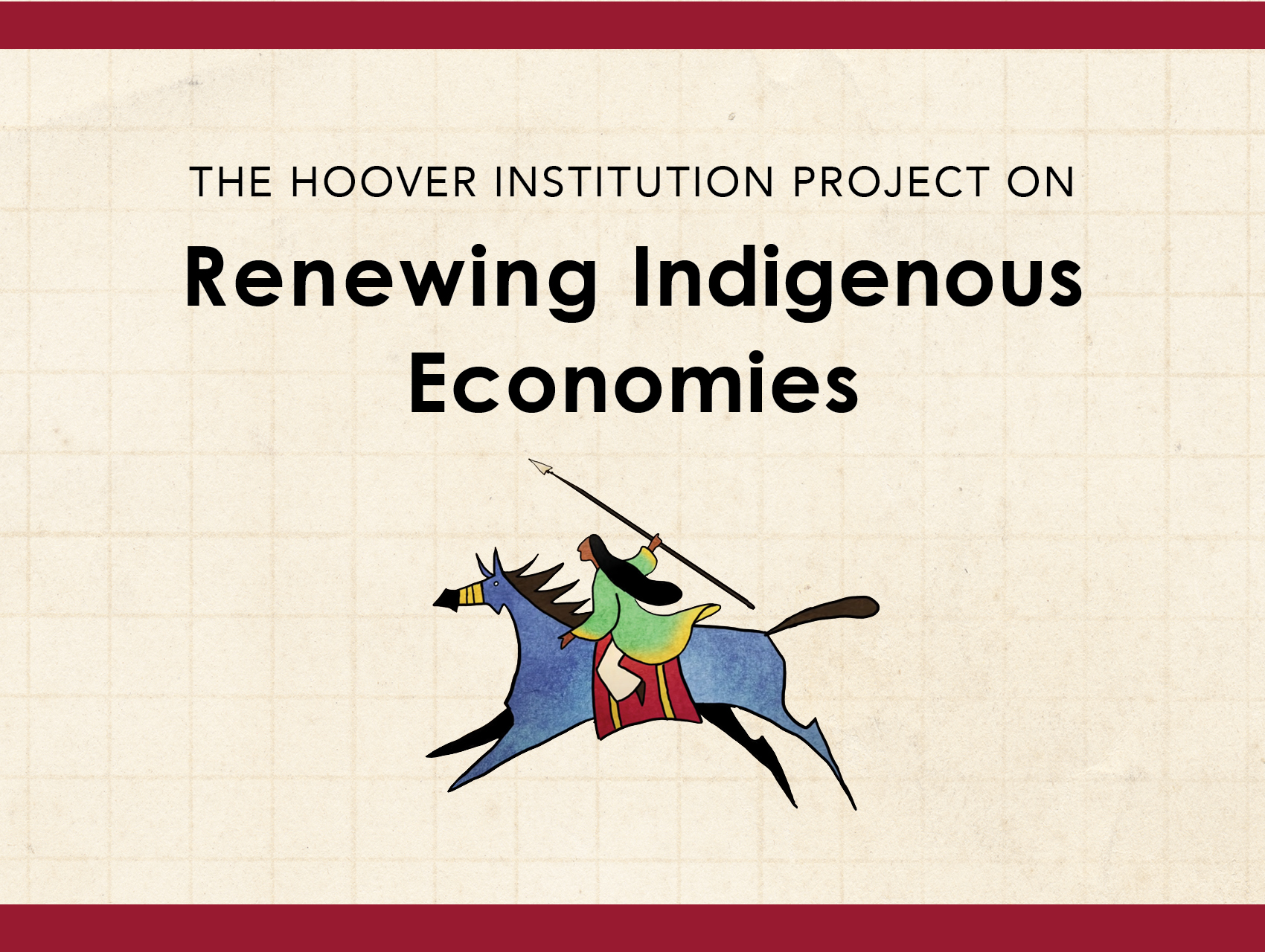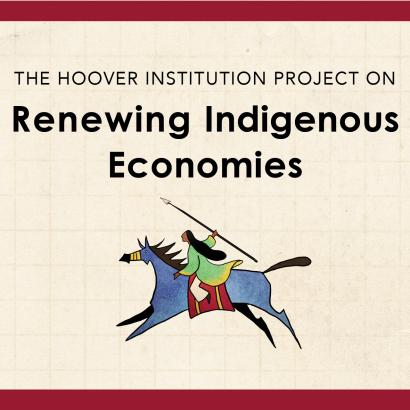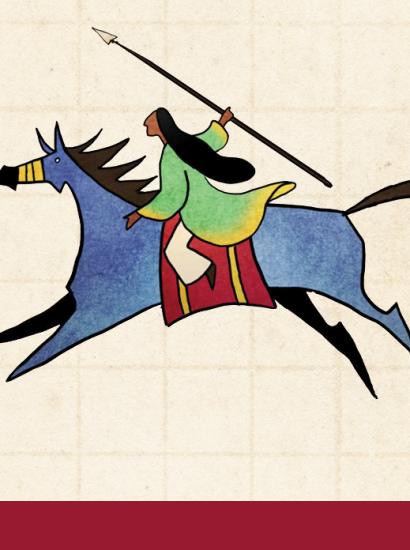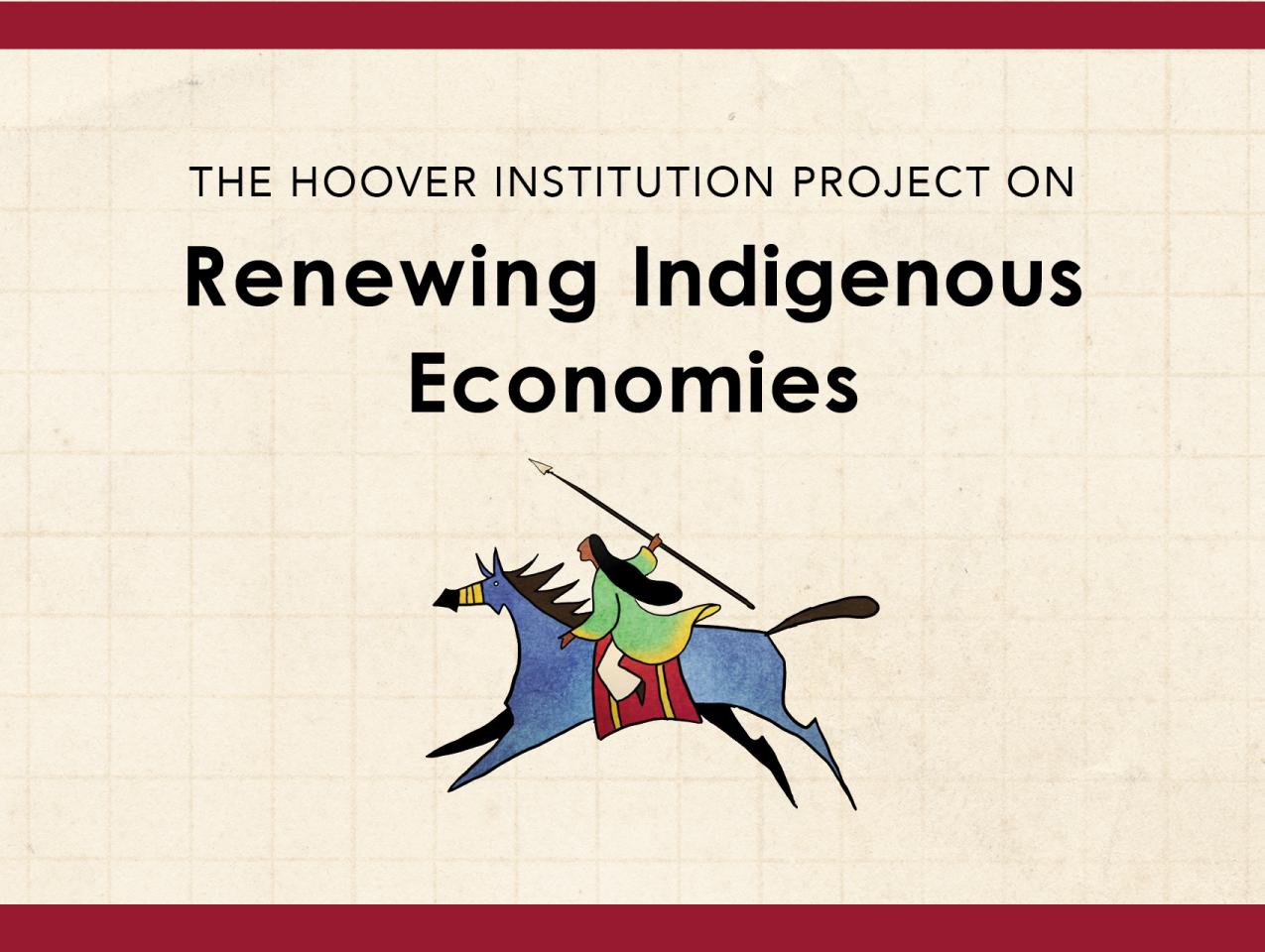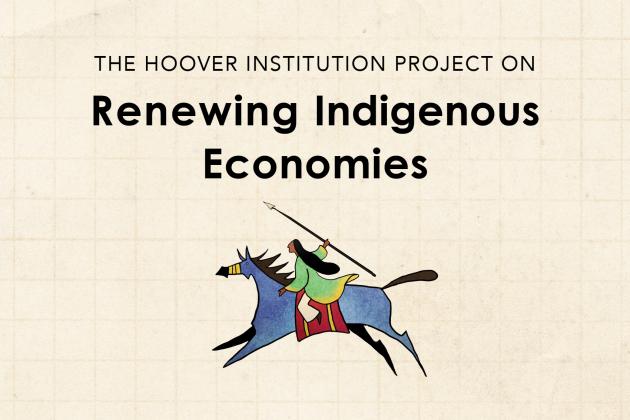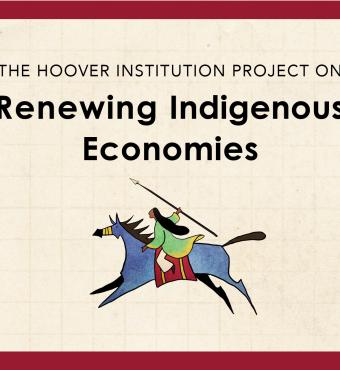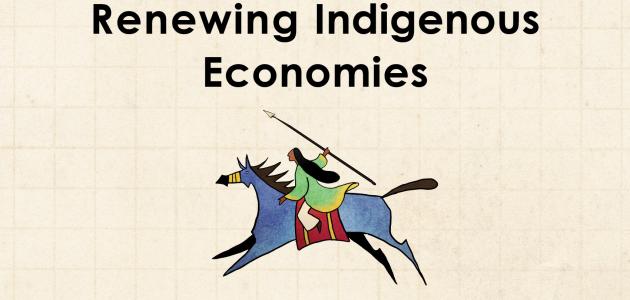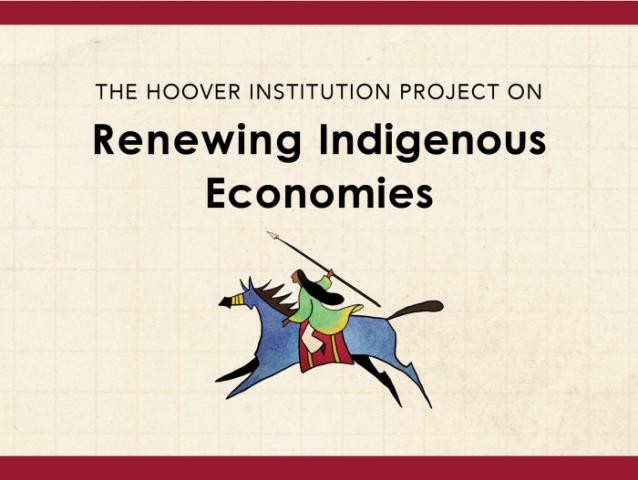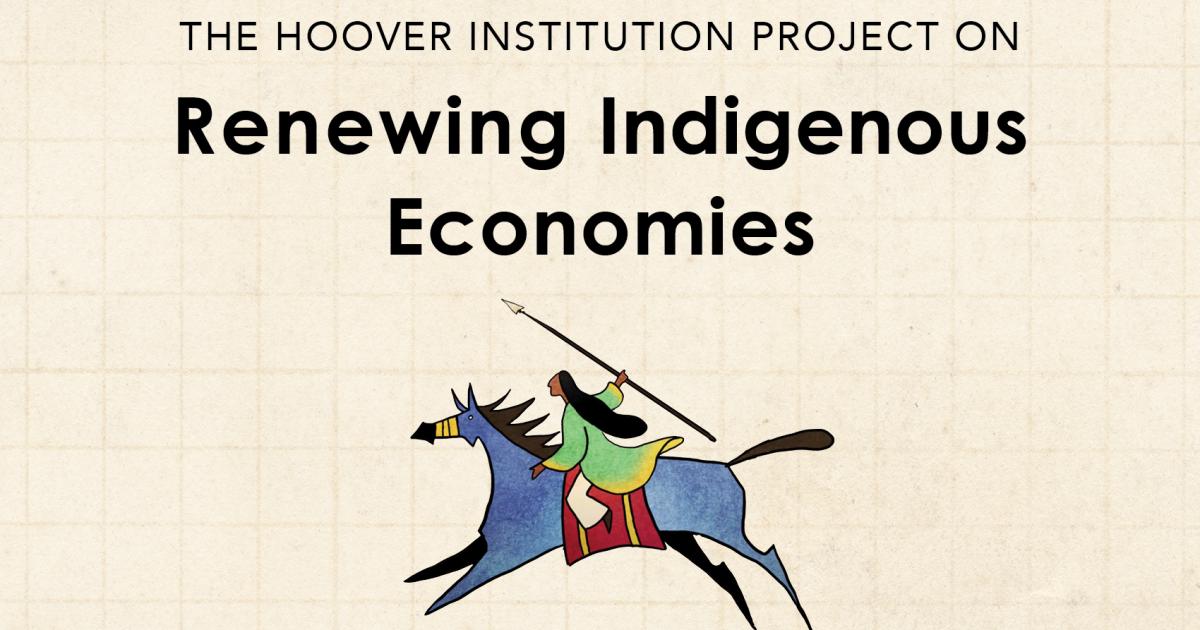The Hoover Institution hosted a workshop of the Renewing Indigenous Economies (RIE) Project on November 6–7, 2023. It was attended by eighteen scholars from the United States and Canada.
The workshop, The Economics and Politics of Tribal Governance, Past and Present, was codirected by John and Jean De Nault Senior Fellow Terry Anderson and Ilene and Morton Harris Visiting Fellow Dominic Parker. The participants discussed six research papers and engaged in a question-and-answer session with Anne Hyde, a historian from the University of Oklahoma, based on her book, Born of Lakes and Plains: Mixed-Descent Peoples and the Making of the American West.
The participants represented a range of disciplines, including economics, political science, history, and law. The workshop featured several scholars new to the RIE project, including professor of law M. Todd Henderson (University of Chicago), professor of political science Jeffery Jenkins (University of Southern California), and professor of health policy Grant Miller (Stanford University).
The first two sessions on November 6 focused on trade practices and policies between American Indians and British, French, and American colonists through the middle of the nineteenth century. Henderson opened the workshop with a discussion of his paper “Order without Law among Strangers.” His scholarship emphasizes how seventeenth- and eighteenth-century Indigenous people were sophisticated trading partners with European powers rather than pawns in a colonial network. Jenkins discussed his paper, “Rise and Fall of Indian Trading Houses,” which explores the politics of government trading houses during the early nineteenth century and raised questions about their effectiveness in discouraging fighting and encouraging trade on the frontier.
The next two sessions discussed papers that evaluate the effects of assimilation policies through the early twentieth century. Economist Donn Feir (University of Victoria) presented a paper (co-authored with Maggie Jones, Emory University, not in attendance) about the contemporary and longer-term effects of Christian missionaries on Indigenous people. Their study highlights how missions may have affected tribal bargaining power, positively and negatively, in treaties that in some cases remain in force today. Miller presented research coauthored with Matthew Snipp (Stanford University professor of sociology and vice provost) on the mortality effects of the federal allotment of tribal lands at the turn of the twentieth century. Their research suggests that this top-down policy put American Indian lives at risk.
Anne Hyde ended the day by leading a discussion of her book, which traces intermarriage between American Indians and Whites, facilitating peace and prosperity. To the surprise of many scholars, intermarried couples and their offspring prospered by taking advantage of shared languages, cultures, and economic trading networks before the turn of the twentieth century, when federal Indian policy penalized racial mixing.
On November 7 the focus turned to contemporary governance issues. Parker led a discussion of “Economic Uncertainty and McGirt vs. Oklahoma” (coauthored with Sarah Johnston, University of Wisconsin, not in attendance). Their assessment of real estate markets following the referenced US Supreme Court decision (2020) suggests that on-the-ground tribal, state, and local institutions adapted more fluidly than Chief Justice John Roberts expected when he opposed the majority decision giving tribes legal jurisdiction over half of Oklahoma. Although Roberts worried the decision “creates significant uncertainty for the State’s continuing authority over any area that touches Indian affairs, ranging from zoning and taxation to family and environmental law,” Parker and Johnston find limited evidence of widespread economic effects.
Closing the workshop, associate professor of political science Paasha Mahdavi (University of California–Santa Barbara) presented his paper (coauthored with Parker and Christopher Alcantara of Western University, not in attendance), “Indigenous Governance and Political Participation,” addressing a topic of importance to understanding how politics and democratic representation affect modern tribal economies.
The evidence and stories emanating from this research workshop demonstrate how early tribal economies were based on institutions that rewarded entrepreneurship, economic cooperation through trade, and asset stewardship. The contemporary analyses highlight some of the economic, legal, and political institutions necessary for vibrant modern economies.
The Hoover workshop was made possible by the generosity of the Searle Family Foundation.
AGENDA
Hoover Institution Workshop on Economics and Politics of Tribal Governance, Past and Present
Directed by Terry L. Anderson and Dominic P. Parker
November 6-7, Annenberg Conference Room
| Monday, November 6 | |||
|---|---|---|---|
| Time | Content | Presenters | |
|
9:00 - 9:15 AM |
Welcome |
Terry Anderson and Dominic Parker, Hoover Institution |
|
|
9:15 - 10:30 AM |
Session 1: “Order without Law among Strangers” |
M. Todd Henderson, University of Chicago |
|
|
10:45 - 12:00 PM |
Session 2: “Rise and Fall of Indian Trading Houses” |
Jeffery Jenkins, University of Southern California |
|
|
1:15 - 2:30 PM |
Session 3: “The Effects of Christian Missionaries for Indigenous People” |
Donn Feir, University of Victoria |
|
|
2:45 - 4:00 PM |
Session 4: “The Impact of US Assimilation and Allotment Policy on American Indian Mortality” |
Grant Miller, Stanford University |
|
|
4:15 - 5:30 PM |
Session 5: “Mixed-Descent Peoples and the Making of the American West” |
Anne Hyde, University of Oklahoma |
|
| Tuesday, November 7 | |||
|---|---|---|---|
| Time | Content | Presenters | |
|
9:00 - 10:15 AM |
Session 6: “Economic Uncertainty and McGirt vs. Oklahoma” |
Dominic Parker, University of Wisconsin and Hoover Institution |
|
|
10:15 - 10:30 AM |
Session 7: “Indigenous Governance and Political Participation” |
Paasha Mahdavi, University of California–Santa Barbara |
|
|
11:30 AM |
Closing Remarks |
Terry Anderson and Dominic Parker, Hoover Institution |
|







